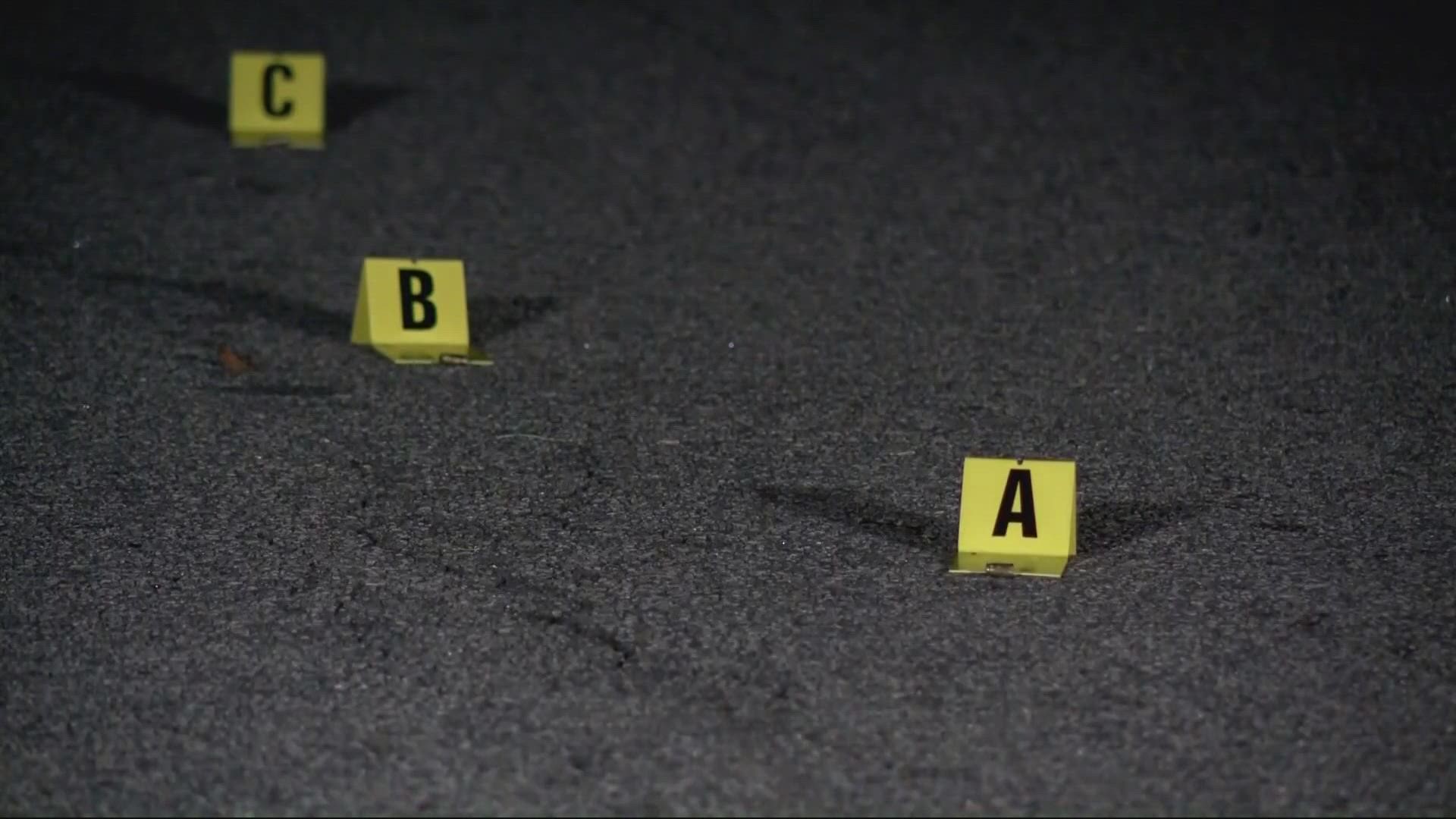PORTLAND, Ore. — A Portland Police Bureau (PPB) community oversight group plans to recommend "ShotSpotter" gunshot detection technology to the Portland mayor's office on Monday.
It's part of the group's search for solutions to help slow the city's spike in shootings.
The Focused Intervention Team Community Oversight Group, or FITCOG, formed in June 2021 and is now finalizing its review of the ShotSpotter service.
Pastor Ed Williams, chairperson of the committee, said in a public meeting Thursday that he's finalizing the recommendation this weekend before FITCOG plans to release it to the public on Monday.
ShotSpotter, a popular gunshot detection company used by police departments across the country, uses a system of audio sensors to send alerts to police that show when and where gunshots are fired.
However, studies of ShotSpotter in other cities have produced questions over the efficacy and worth of the technology — questions which some Portland community members echoed in the FITCOG meeting Thursday night.
"This technology is reactive and so it doesn't seem to prevent shootings or address the problem of why shootings are occurring in the first place," said Chris in a question over the Zoom call. "If the city is going to incur annual fees anyway, why not apply that to community services [to prevent gun violence]?"
ShotSpotter sensors are frequently put up on buildings or street posts or other structures, covering a certain number of square miles that city leaders have identified as a hotbed for gun violence.
Coverage and services can often cost large cities millions of dollars per year.
“City assets shouldn’t be going to ShotSpotter instead of communities, city assets should be going to ShotSpotter and everything else that should be used to reduce crime and address the root causes of gun violence," said ShotSpotter employee Paul S. John in the meeting. "Of course it’s up to the police department and the city to decide whether or not ShotSpotter is worth it.”
PPB sergeant Kenneth Duilio highlighted the biggest selling point for ShotSpotter during the discussion: faster notification for officers about potential gunshots.
"The quicker we can get there, whether it’s saving a life or catching the shooter in the act, the better," Duilio said.
Ron Teachman, a former police chief turned ShotSpotter employee, answered questions after presenting about the technology's benefits on Thursday.
“You have a staffing issue, a limited resource issue, [you] want to make sure you get full utility out of the service — putting it where it’s most needed based on historical review of gunfire," Teachman said.
Teachman said quicker response times to shootings could get emergency medical care to shooting victims more quickly and provide police with more information when they arrive on scene.
Whether ShotSpotter is worth it as an additional tool for PPB to tackle gun violence depends on another big question — is the technology effective?
Various studies across the country, including one from the Chicago Office of Inspector General, found ShotSpotter alerts rarely led to arrests or evidence of gun-related crime.
About nine out 10 times, Chicago officers responded to a ShotSpotter alert and didn’t find anything, which the OIG said was a significant strain on police resources.
"Those dead-end deployments are more than likely," said Ed Vogel of Lucy Parsons Labs in Chicago, a group that investigated the ShotSpotter research. "It's reactive, it's not a proactive investment in trying to address the root causes of gun violence in the city, thinking about questions of poverty, public education, mental health resources."
When asked by Portland community members about the Chicago study, ShotSpotter representatives argued it's more a critique of Chicago police officers.
"So 87% of the calls didn’t result in a police report. That doesn’t mean it wasn’t a positive result, neighbors saw police respond." Teachman said. "The fact that police didn’t have time or make the effort to find evidence doesn’t mean it wasn’t a reportable incident."
ShotSpotter reports a 97% accuracy rate at identifying gunshots. It paid for a consulting firm, Edgeworth Analytics, to review its accuracy and the firm confirmed that number.
However, that accuracy review relied on police officers reporting that a ShotSpotter alert led them to something that was confirmed not to be a gunshot. For example, fireworks debris at the location. In cases where police officers arrive at a scene and nothing is found, they're unlikely to report a ShotSpotter error, and more likely to correlate that to a lack of obtainable evidence.
This means that critics like Vogel question the accuracy of the ShotSpotter sensors, as the company hasn't allowed an independent organization to assess this aspect of its technology.
Teachman said that if the technology didn't work, police officers would be the first to complain and the company wouldn't be operating in 135 cities.
ShotSpotter has been quick to push back against critical articles and studies, a strategy that's been outlined by several news organizations.
The company instead applies an aggressive marketing strategy that includes a highlighted section on its website homepage, saying, "ShotSpotter responds to false claims — learn the truth behind the disinformation about ShotSpotter's leading gunshot detection service."
Teachman and other ShotSpotter representatives frequently point to testimonials from other police departments as reason enough for cities to contract the company's services.
"There are some highly contagious people in the social disease of gun violence, and what can we do to have an intervention?" Teachman said.
WATCH: Gun violence playlist

